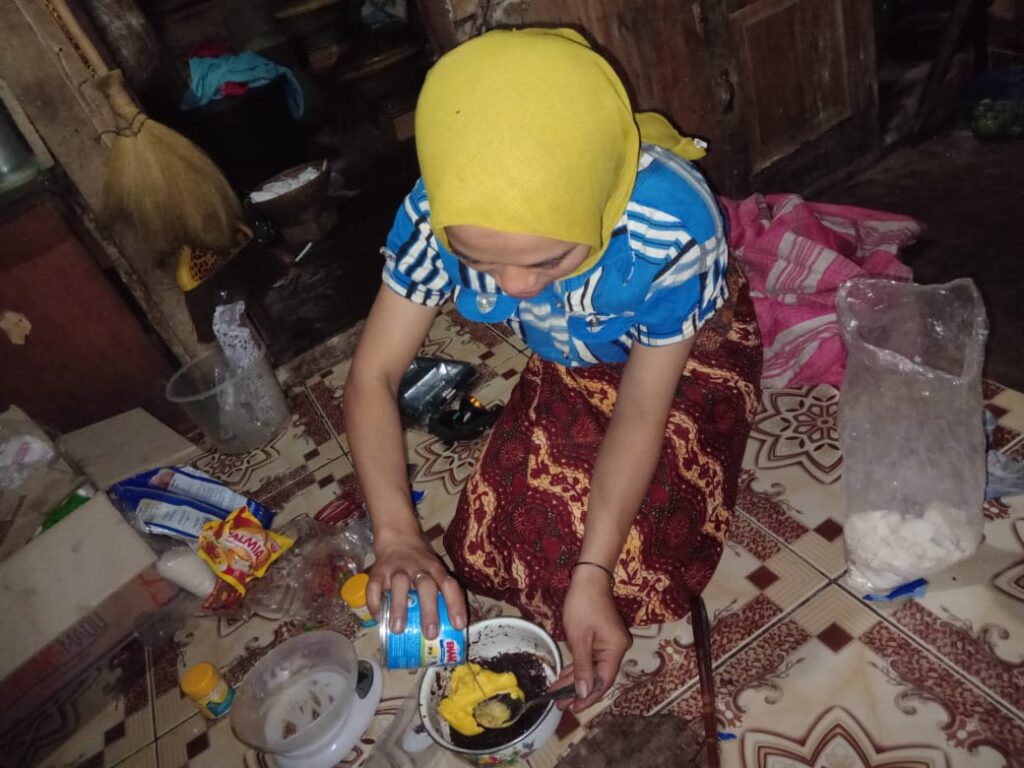During the Estungkara mentoring period in 2023, RMI (Young Indonesian Foresters) held training with the theme "Economic Development for Women." Especially for Kasepuhan Cibarani women, on 22-24 July 2023 in Kasepuhan Pasir Eurih, Lebak, Banten.
This activity aims to empower women's business groups in RMI-assisted communities, especially in the Lebak area. The Estungkara program itself is designed to encourage vulnerable groups, including women, to actively participate in development and natural resource management.
The training involved three groups of women who began to actively run economic businesses by maximizing the potential of natural resources around them. The three groups came from Kasepuhan Pasir Eurih, Kasepuhan Cirompang, and Kasepuhan Cibarani. One of the women's economic groups that took part in this training was the Kasepuhan Cibarani Women's Group.
This group consists of seven women who previously worked as housewives. With daily activities, helping her husband in the fields or collecting forest products to increase the family's income.
Since participating in capacity building training organized by RMI, the Kasepuhan Cibarani traditional women's group began to take the initiative to create a cake-making business group using basic ingredients from natural resources around the customary forest and community gardens. They made various types of cakes which they learned and practiced together with groups of women from two other Kasepuhan during training with RMI.
These cakes include cassava brownies, banana nuggets, buras cake, banana cake, and pineapple jam banana bread. Using ingredients such as bananas, cassava, palm sugar, pineapple and sticky rice which come from forest and garden products in Cibarani village.
This group often holds regular meetings at one of the members' homes to bake cakes. Which are then sold in stalls, school canteens and around the village. Even though the profits obtained from selling cakes are not routine, the results are enough to help meet their household needs.
Cake production usually stops during the rice planting season, because women have to work in the fields all day helping their husbands. Likewise, during the month of Ramadan, they focus more on collecting palm fruit from the forest which is sold at high prices ahead of Eid.
The group management structure is now starting to be established to ensure activities run well. Teh Jarsih is trusted as the group leader, while the bookkeeping affairs are managed by Teh Arsanah and Teh Suenah. RMI also invited representatives from this group to take part in a comparative study with two other groups of women from Kasepuhan.
This comparative study aims to study the leadership system, strengthening group organization, and the basics of forming cooperatives. In order to increase their capacity in carrying out their respective group activities.
It is hoped that after participating in several capacity building activities facilitated by RMI, this group can become stronger and more solid.
Apart from that, it is hoped that this group can become one of the economic drivers that increases the role and capacity of traditional women in Kasepuhan Cibarani. Initiatives like this are not only a step towards economic equality, but also an investment in local economic sovereignty. Also, it has a long-term impact on the welfare of indigenous peoples.


